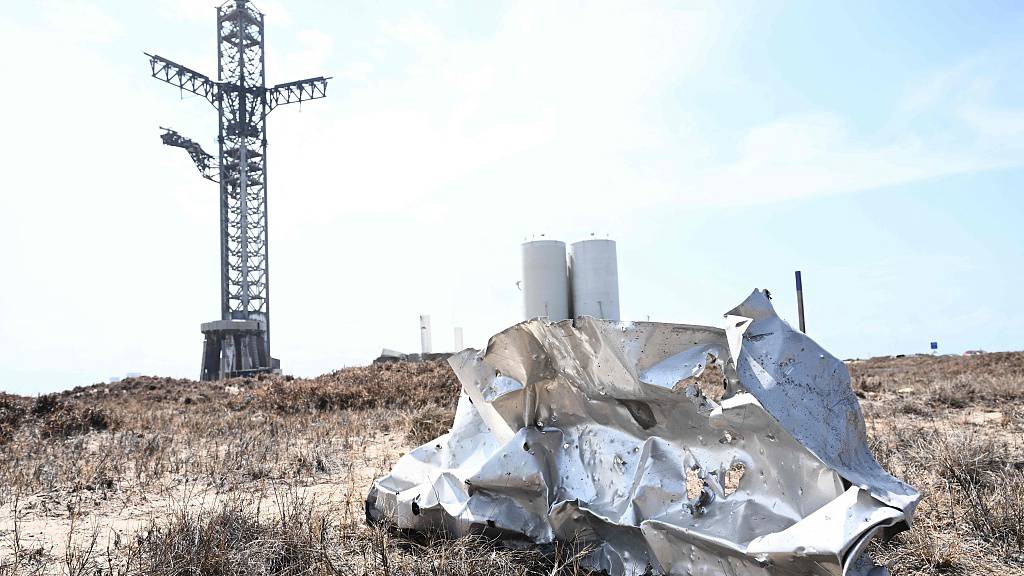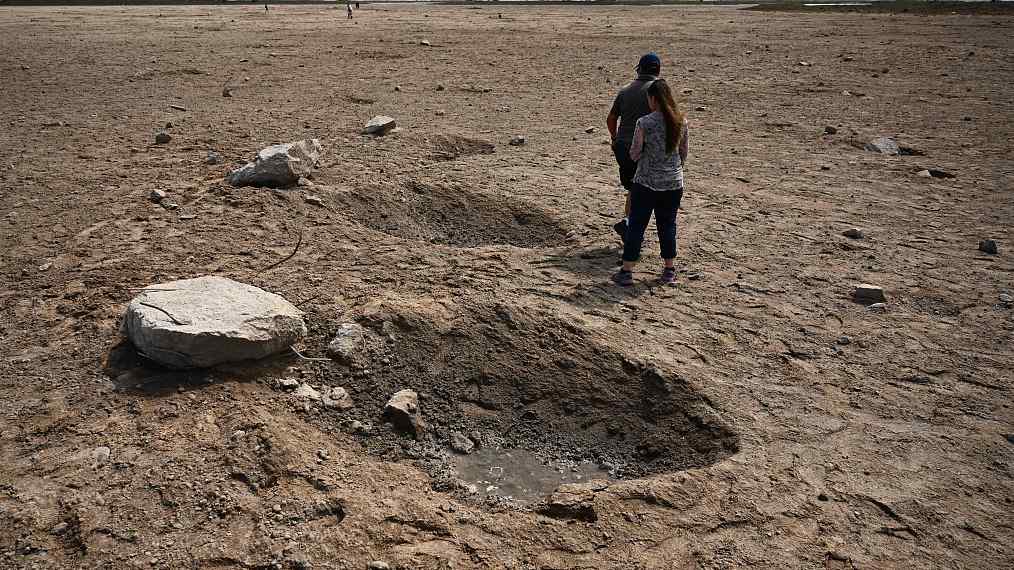
Debris litters the ground after the SpaceX Starship lifted off on April 20 for a flight test from Starbase in Boca Chica, Texas, April 22, 2023. /CFP
Debris litters the ground after the SpaceX Starship lifted off on April 20 for a flight test from Starbase in Boca Chica, Texas, April 22, 2023. /CFP
Conservation groups sued the Federal Aviation Administration (FAA) on Monday, challenging its approval of expanded rocket launch operations by Elon Musk's SpaceX next to a national wildlife refuge in South Texas without requiring greater environmental study.
The lawsuit comes 11 days after SpaceX made good on a new FAA license to send its next-generation Starship rocket on its first test flight, ending with the vehicle exploding over the Gulf of Mexico after blasting the launchpad to ruins on liftoff.
The shattering force of the launch hurled chunks of reinforced concrete and metal shrapnel thousands of feet from the site, adjacent to the Lower Rio Grand Valley National Wildlife Refuge near Boca Chica State Park and Beach.
The blast also ignited a 1.4-hectare brush fire and sent a cloud of pulverized concrete drifting 10.5 km to the northwest and raining down over tidal flats and the nearby town of Port Isabel, according to the U.S. Fish and Wildlife Service.

A debris field at the launch pad after the SpaceX Starship lifted off on April 20 for a flight test from Starbase in Boca Chica, Texas, April 22, 2023. /CFP
A debris field at the launch pad after the SpaceX Starship lifted off on April 20 for a flight test from Starbase in Boca Chica, Texas, April 22, 2023. /CFP
SpaceX hailed the launch as a qualified success that will yield valuable data to advance development of its Starship and Super Heavy rocket, major components in NASA's new Artemis program for returning astronauts to the moon.
But Monday's lawsuit said the April 20 incident marked the latest in a series of at least nine explosive mishaps at Boca Chica, disrupting a haven for federally protected wildlife and vital habitat for migratory birds.
Noise, light pollution, construction and road traffic also degrade the area, home to endangered ocelots and jaguarundis, as well as nesting sites for endangered Kemp's Ridley sea turtles and critical habitat for threatened shorebirds, the suit says.
The disturbances show the FAA violated federal law by permitting expanded operations at Musk's Starbase in Boca Chica without mandating the full environmental impact study (EIS) normally required for major projects, the lawsuit asserts.
The 31-page complaint seeks to revoke the FAA license and require an EIS.
The FAA's chief of staff for the Office of Commercial Space Transportation had stated in a June 2020 email that the agency planned to conduct an EIS, but the FAA "subsequently deferred to SpaceX" and performed a less rigorous review instead, according to the lawsuit.
An FAA spokesperson said the agency, as a matter of policy, does not comment on active litigation. There was no immediate word on the case from SpaceX.
Musk, the billionaire founder and chief executive of the California-based company, addressed criticism from environmentalists in remarks during an event on Saturday, saying the debris scattered by last month's launch amounted to "a human-made sandstorm."
"It's not toxic at all or anything," he said. "It did scatter a lot of dust, but to the best of our knowledge, there has not been any meaningful damage to the environment that we're aware of."
Source(s): Reuters